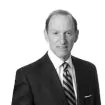How do you sway a jury when defending a client whose actions exist on the blurry line between a punishable crime and sin? In a recent episode of For The Defense, Winston & Strawn Washington, D.C. Partner Abbe Lowell discusses this topic with host David Oscar Markus, and how it relates to Abbe's defense of John Edwards during the senator's 2011 financial indictments.
Here are some key takeaways from their conversation:
Are trial lawyers born or made?
According to Abbe, they are a confluence of both nature and
nurture. Positive reinforcement is important, but there is also an
inherent X factor that calls trial lawyers to center stage.
"To be a trial lawyer," Abbe said, "you have to have
a desire to be a performer at some level. If I hadn't done
this, it would have been Broadway."
Trial lawyers are often challenging to represent.
At the time of his trial, Senator Edwards was not only one
of the best trial lawyers in North Carolina but also an
accomplished public speaker and government official. However, due
to the personal nature of the case, he lacked objectivity. While
challenging, Abbe maintains that the senator's mindset was
ultimately helpful because they could use each other as sounding
boards. As the senator later told Abbe, for every moment of
Abbe's representation he had 25-30 ideas a day and twice as
many during the trial and maybe two of them were OK.
Defense attorneys are often proponents of cameras in the
courtroom for appellate arguments, but skeptical about their
inclusion during a criminal case.
Abbe believes cameras cause trial participants to play
beyond the jury. There's also the issue of jurors being exposed
to additional information and opinions regarding the case through
friends, family, and the news. This places an increased pressure on
jurors and "the opportunity for mischief."
Listen to the full episode here.
The content of this article is intended to provide a general guide to the subject matter. Specialist advice should be sought about your specific circumstances.

